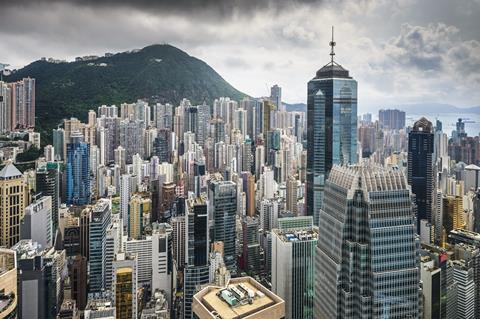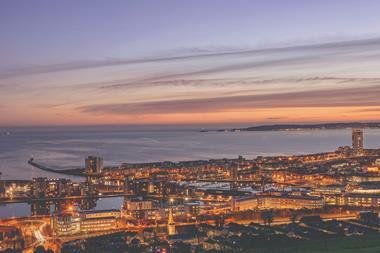In the first of a new series putting a spotlight on different real estate markets across the world, Property Week takes a look at Hong Kong’s office sector.

Q&A with Shaowei Toh, Head of Research & Strategy for APAC at UBS-AM Real Estate & Private Markets:
How has Hong Kong’s office market performed in the last year?
Even before the onset of Covid-19, the relevance of Hong Kong as an international office market was increasingly thrust into the limelight, as the occupier profile of the sector shifted from a clear dominance by multinational firms towards a market driven by growing demand from Chinese mainland occupiers. This growth in demand from mainland China– which accounts for over a third of all reported CBD demand in the past three years – has played a key role in pushing up prime central office rents. In the past year, anecdotal feedback also suggests that many corporates have delayed their expansion plans, and lease renewals have generally taken a backseat.
What has happened to take-up in Hong Kong’s office market?
As at 1Q 2020, Hong Kong remained badly affected by social unrest and Covid-19, which severely dampened corporate sentiment towards real estate expansions. Net office absorption contracted by close to 500,000 sqm - the worst reading since 2002 - as some tenants, including several co-working operators, gave up space, leading to the Grade A vacancy rate shooting up to a 10-year high of above 7.5%. Prime rents fell 3.4% QoQ in 1Q20, with further corrections to be seen in the months ahead.
Who are the typical occupants in Hong Kong’s office market?
Occupiers from the finance sector have made up close to half of all office take-up in the last few years. This is expected, given Hong Kong’s financial stronghold status in the region. From 2016 onwards, we saw flexible office operators ramp up their presence in Hong Kong, and that segment alone constitutes close to 20% of all office absorption.
What are the main challenges facing Hong Kong’s office market at the moment?
From capital might to capital flight, changes in investor attitudes could trigger a sustained lull in the real estate sector and liquidity. It is apparent that politics will affect the office market in Hong Kong more than anything else. The medium-term consideration for real estate market participants is stability. Within the Greater Bay Initiative, if Beijing diverts more resources towards Shenzhen, this could dilute Hong Kong’s appeal and regional standing. For now, this risk is one that is unlikely to materialize overnight but could very well be a reality in the longer term.
What has happened to investment volumes in Hong Kong’s office market?
In 2019, we saw investment volumes in the office sector plunge by almost half from 2018 levels, from roughly HKD 117 billion to less than HKD 60 billion. The first quarter of 2020 also marked the lowest quarterly office investment volumes since we started tracking the numbers, and this figure is significantly lower than what we saw even during the peak of the GFC. This can hardly be described as surprising, given the upheaval experienced in 2019, which extended into 2020 in the form of Covid-19.
What are your expectations for the sector over the next 12 months?
We do not expect any major knee jerk reaction in the form of widespread distressed sales, nor do we believe that cap rates will decompress significantly. However, if the socio-political environment worsens even after the Covid-19 outbreak eases off, there could be a sustained downside exposure to capital outflows, which may ultimately affect property valuations.





























No comments yet